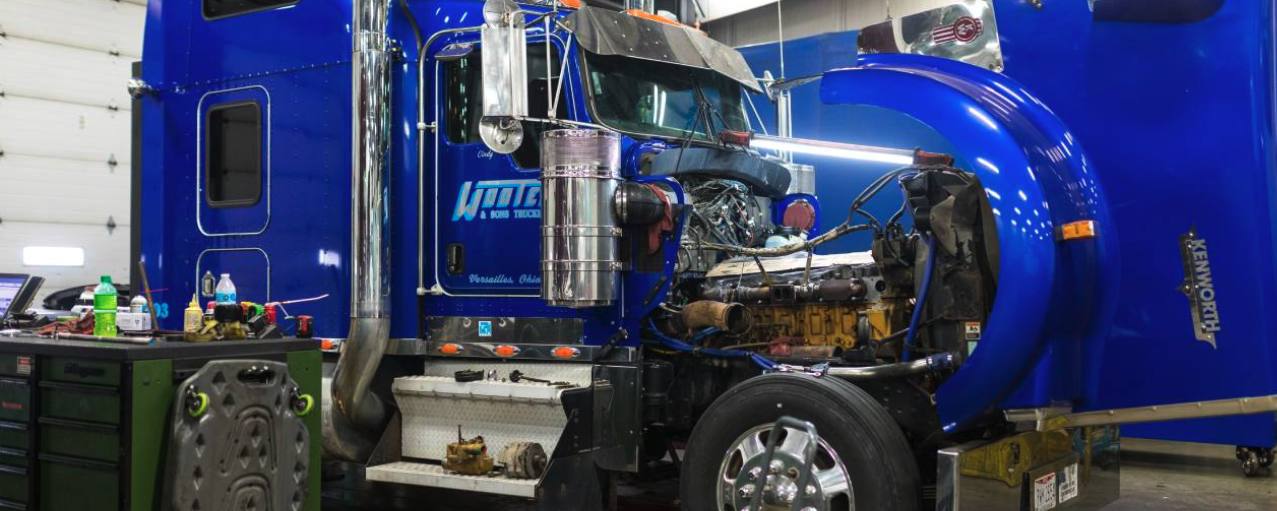5 Indicators Your Heavy Duty Truck Needs Brakes Repair Immediately

Heavy-duty braking systems are incredibly important, for they’re responsible for bringing nearly a hundred thousand pounds to a stop on a regular basis. As such, maintaining them is a necessity. Brake pads typically need to be replaced every 50,000 miles; however, the wear rate may change depending on how often you travel, the weight of your cargo, and how often you need to brake hard. Also, contaminants like road salt and water may cause your brake components to corrode or rust, therefore lessening their lifespan. Here are some symptoms to look out for when considering whether or not you need new brakes.
1. Brake Adjuster Damage
Before every trip, we highly recommend you crawl under your truck and inspect your brake adjusters. Brake adjusters are responsible for adjusting the distance your brakes have to travel before your caliper is engaged. This distance changes over time due to the inevitable wearing down of your brake pads or brake shoes. When inspecting your brake adjusters, be sure to look for damaged seals, boots, operating mechanisms, and visible misalignment. If any of these symptoms are present, take your truck in for service right away.
2. Vibrations and changes in driving
Feeling your heavy-duty truck pull to the left or right may signal that your brakes aren’t working correctly. Vibrations when braking is usually caused by warped rotors, which in turn, are caused by excessive hard braking. It can also mean that your truck’s alignment or tires are misaligned and must be checked. In any case, we strongly recommend you get your heavy-duty truck serviced right away.
3. Your truck sways
When you use the brakes, does your heavy-duty truck sway? If so, your brake rotors may need to be changed. A truck that sways when braking is generally one that’s suffering from deformed brake rotors. For those that aren’t familiar with how rotors work, they’re basically what your brake pads or shoes are compressed against. Deformed brake rotors are typically caused by contamination, excessive braking, and rust.
4. Brake Pedal Compression Distance
If you have to compress your brake pedal a lot farther when braking, you may have a problem with your air brake system. Changes in brake pedal compression distance usually means there’s a leak in your system or your compressor is not filling your air tanks with enough compressed air. Regardless of the cause, this is not something to take lightly. Be sure to schedule an appointment with us if you experience this symptom.
5. Your ABS Light Pops Up
If your ABS light pops up on your dashboard, we highly recommend taking your truck in for service. Generally, ABS lights indicate a problem with the system itself. For those that aren’t aware, you’re ABS is a system that prevents your tires from locking up under heavy-braking. This anti-lock system allows for you to remain in control of your heavy-duty vehicle at all times.
Final words
Don’t ignore brake problems if you have them. Many brake-related issues may cost you a lot of money if not addressed early. Suppose something as basic as requiring new brake pads is ignored for a long enough period. In that case, it might eventually result in complete braking failure, putting the passengers of the heavy-duty truck and other drivers on the road in extreme danger.
Nothing is more crucial to a heavy-duty truck’s safety than a functioning braking system. In the case of an accident, airbags and seatbelts are fantastic, but if the brakes are in good condition, they may be able to stop the disaster altogether. You can ensure that you can reach the auto shop for servicing before it’s too late by keeping an eye out for the aforementioned brake issue symptoms.
